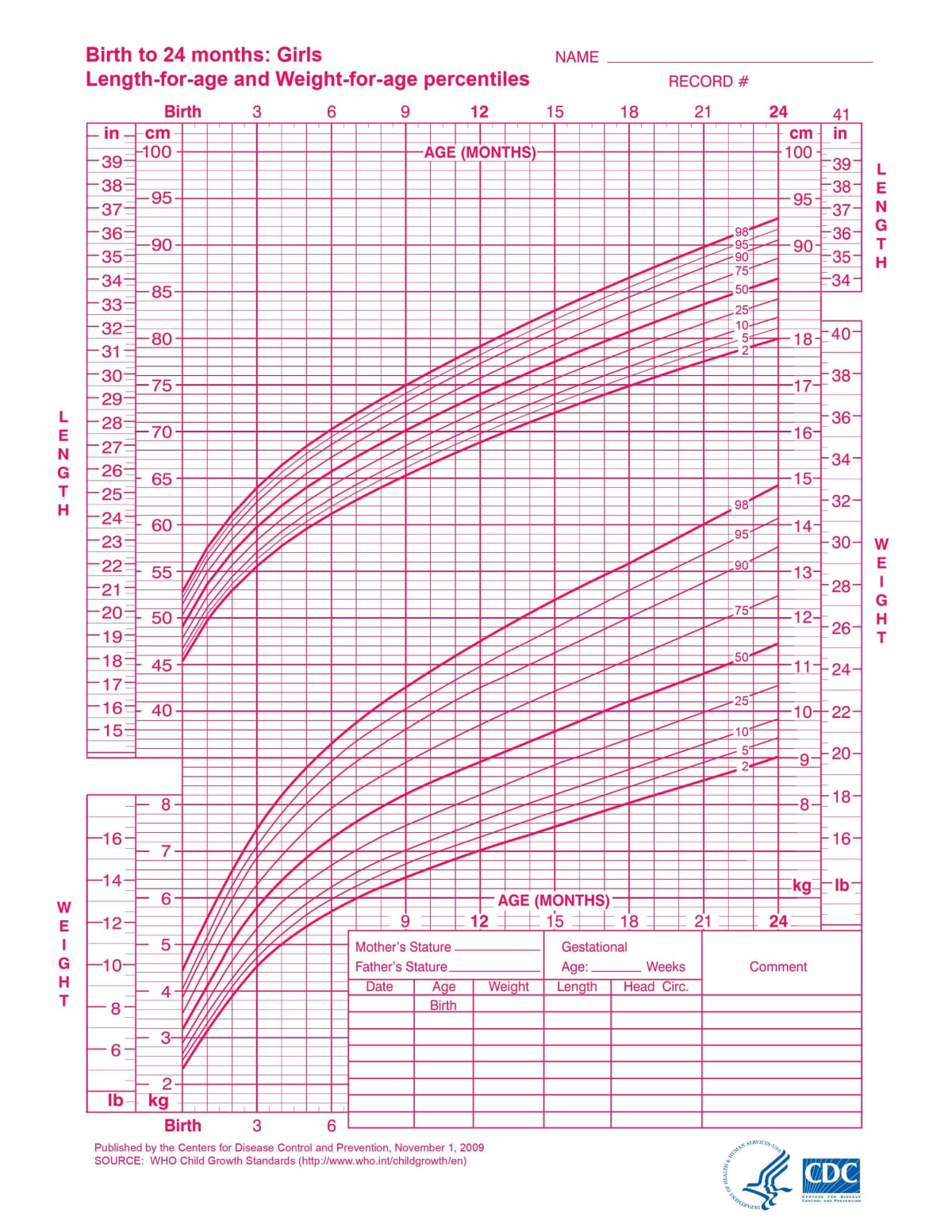Growth Failure in Children with Chronic Kidney Disease
On this page:
- What is growth failure in children with chronic kidney disease?
- How common is growth failure in children with CKD?
- Which children with CKD are more likely to experience growth failure?
- What are the complications of growth failure in children with CKD?
- What are the symptoms of growth failure in children with CKD?
- What causes growth failure in children with CKD?
- How do health care professionals diagnose growth failure in children with CKD?
- How do health care professionals treat growth failure in children with CKD?
- How can growth failure in children with CKD be prevented?
- Clinical Trials for Growth Failure in Children with CKD
What is growth failure in children with chronic kidney disease?
Growth failure is a common complication in children with chronic kidney disease (CKD). Children with growth failure grow at a slower rate and are shorter than many children of the same age and sex. This is because the kidneys play an important role in a child’s growth. When the kidneys are damaged, growth can be slowed.
How common is growth failure in children with CKD?
Growth failure in children with CKD is common. About one-third of all children with moderate to severe CKD have a height below the third percentile, which means they will be shorter than 97% of children the same age and sex.1
Among children with end-stage kidney disease—kidney failure that is treated with kidney transplant or dialysis—up to 40% will have a final height below the third percentile.2
Which children with CKD are more likely to experience growth failure?
Many children with CKD are at risk for developing growth failure.
Children who are diagnosed with CKD at a younger age, particularly those 2 years old or younger, are more likely to develop growth failure. These children are also more likely to have growth failure that is more severe compared with children diagnosed with CKD later in childhood.1
Risk for poor growth in children with CKD increases when the loss of kidney function is more severe.1
What are the complications of growth failure in children with CKD?
Some children with CKD who develop growth failure may experience low self-esteem, behavior problems, and poor school performance. Parents or guardians may want to learn more about how to care for a child with kidney disease, including how to give your child the support they need to help manage growth failure and other challenges of living with CKD.
Delayed puberty is common in children with CKD and may delay growth. Some children may be concerned about entering puberty later than other children of the same age.
What are the symptoms of growth failure in children with CKD?
Symptoms of growth failure in children with CKD include
- shorter-than-average height
- slowed growth
What causes growth failure in children with CKD?
Multiple factors may lead to growth failure in children with CKD, including
- malnutrition, when your child doesn’t get enough calories, which occurs most commonly in infants.
- mineral and bone disorder, when calcium and phosphorus levels in your child’s blood are out of balance, leading to slowed bone growth.
- metabolic acidosis, when there is too much acid in your child’s blood, which interferes with proper growth. Metabolic acidosis affects your child’s bone and connective tissue, limiting bone growth.
- fluid and electrolyte imbalance, when there is a larger than normal amount of sodium in your child’s urine, which can reduce the sodium level in the blood, causing poor growth.
- growth hormone resistance, when waste builds up in your child’s blood and prevents the body from properly using growth hormone, a hormone needed for growth.
- delayed puberty.
How do health care professionals diagnose growth failure in children with CKD?
Health care professionals use growth charts to monitor how well children with CKD grow and to look for signs of growth failure. Your child’s health care professional will regularly measure your child’s height—or length, for children ages 2 years or younger—and will use the chart to track your child’s growth over time.
 A sample growth chart showing length-for-age and weight-for-age percentiles for infant girls, ages 2 years and younger.
A sample growth chart showing length-for-age and weight-for-age percentiles for infant girls, ages 2 years and younger.
Growth charts use percentiles, which appear as curved lines on the chart, to show how a child’s height compares with other children who are the same age and sex. For example, if a child’s height is on the 10th percentile curve, that means the child is taller than 10% of children the same age and sex and shorter than 90% of children the same age and sex.
Your child’s health care professional will select and use the growth chart most appropriate for your child.
How do health care professionals treat growth failure in children with CKD?
Health care professionals treat growth failure in children with CKD with
Treating growth failure early is important because one-third of a child’s total growth occurs in the first 2 years of life.1
Eating, diet, and nutrition
Children with CKD may not feel hungry or may not have the energy to eat. Your child’s health care professional may recommend dietary changes such as
- adding calories
- limiting phosphorus, potassium, or both
- modifying intake of protein, sodium, and liquids
- adding calcium and vitamin D
Most children with CKD do not require all these dietary changes. Don’t change your child’s diet unless your child’s health care professional recommends changes. Always talk with your child’s health care professional before giving your child any dietary supplements—such as vitamins and minerals, probiotics, complementary or alternative medicines, or any medicines that haven’t been prescribed for your child.
If your child isn’t getting enough nutrients and calories from food and supplements taken by mouth, your child’s health care professional may recommend using a feeding tube—a thin, flexible tube that carries liquid food into the stomach. Feeding tubes are most often used for infants; however, older children may benefit from them as well.
Encouraging children with CKD to develop healthy eating habits that help them grow properly and stay healthy is important. Your child’s health care team will work with you and your child to create an eating plan with the right foods and nutrients in the right amounts for your child.
 Encourage your child to develop healthy eating habits to help prevent poor nutrition and promote healthy growth.
Encourage your child to develop healthy eating habits to help prevent poor nutrition and promote healthy growth.
Medicines
Your child’s health care professional may prescribe one or more of the following medicines to treat or control an underlying condition that may be causing growth failure.
- phosphate binders, to prevent or treat bone disorders by reducing phosphorus levels in the blood
- alkaline therapy, such as sodium bicarbonate or sodium citrate, to treat metabolic acidosis by reducing acid levels in the blood
Growth hormone therapy
Your child’s health care professional may suggest growth hormone therapy to help your child reach normal height. Growth hormone therapy uses a man-made growth hormone that acts like the natural hormone found in the body.
How can growth failure in children with CKD be prevented?
Growth failure in children with CKD often cannot be prevented. However, growth failure may be lessened by preventing or correcting the factors that contribute to growth failure. Starting treatment early—soon after your child is diagnosed with kidney disease—may give your child the best chance of growing at a normal rate.
If your child develops kidney failure, a kidney transplant offers your child the best chance of achieving a normal growth rate. Your child’s health care team may adjust your child’s immunosuppressive medicine to minimize its impact on your child’s growth after the transplant.
Clinical Trials for Growth Failure in Children with CKD
The NIDDK conducts and supports clinical trials in many diseases and conditions, including kidney diseases. The trials look to find new ways to prevent, detect, or treat disease and improve quality of life.
Why are clinical trials with children important?
Children respond to medicines and treatments differently than adults. The way to get the best treatments for children is through research designed specifically for them.
We have already made great strides in improving children's health outcomes through clinical trials—and other types of clinical studies. Vaccines, treatments for children with cancer, and interventions for premature babies are just a few examples of how this targeted research can help. However, we still have many questions to answer and more children waiting to benefit.
The data gathered from trials and studies involving children help doctors and researchers
- find the best dose of medicines for children
- find treatments for conditions that only affect children
- treat conditions that behave differently in children than in adults
- understand the differences in children as they grow
How do I decide if a clinical trial is right for my child?
We understand you have many questions, want to weigh the pros and cons, and need to learn as much as possible. Deciding to enroll in a study can be life-changing for you and for your child. Depending on the outcome of the study, your child may find relief from their condition, see no benefit, or help to improve the health of future generations.
Talk with your child and consider what would be expected. What could be the potential benefit or harm? Would you need to travel? Is my child well enough to participate? While parents or guardians must give their permission, or consent, for their children to join a study, the children must also agree to participate, if they are capable (verbal). In the end, no choice is right or wrong. Your decision is about what is best for your child.
The National Institutes of Health (NIH) is committed to ensuring you get all the information you need to feel comfortable and make informed decisions. The safety of children remains the utmost priority for all NIH research studies. For more resources to help decide if clinical trials are right for your child, visit Clinical Trials and You: For Parents and Children.
What aspects of growth failure are being studied in children with CKD?
Researchers study many aspects of growth failure in children with CKD, such as
- effective therapies to preserve kidney function and improve growth
- treatments to limit the effect of kidney disease on bone growth
- how growth failure affects children who have received a kidney transplant
- how diet affects factors that can slow kidney disease progression and improve growth
Watch a video of NIDDK Director Dr. Griffin P. Rodgers explaining the importance of participating in clinical trials.
What clinical studies for kidney disease are available for child participants?
You can view a filtered list of clinical studies on kidney disease in children that are federally funded, open, and recruiting at ClinicalTrials.gov. You can expand or narrow the list to include clinical studies from industry, universities, and individuals; however, the NIH does not review these studies and cannot ensure they are safe. If you find a trial you think may be right for your child, talk with your child’s health care provider about how to enroll.
References
This content is provided as a service of the National Institute of Diabetes and Digestive and Kidney Diseases
(NIDDK), part of the National Institutes of Health. NIDDK translates and disseminates research findings to increase knowledge and understanding about health and disease among patients, health professionals, and the public. Content produced by NIDDK is carefully reviewed by NIDDK scientists and other experts.
The NIDDK would like to thank:
Larry Greenbaum, M.D., Ph.D., FAAP, Emory School of Medicine

